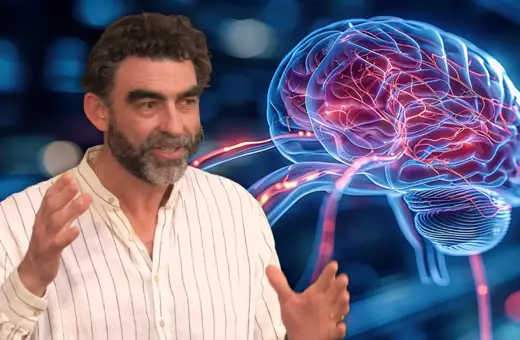Despite their huge success, the natural sciences have a problem: they don’t seem to leave much room for the human subject. Edmund Husserl thought this was reason enough to declare science was in ‘crisis’! But an influential, though widely misunderstood, interpretation of quantum mechanics by physicists Fritz London and Edmund Bauer, places the subject at the heart of our most successful mathematical physics theory yet, writes Steven French.
Husserl’s The Crisis of European Sciences and Transcendental Phenomenology is widely regarded as both his most accessible and most influential work, written under the shadow of fascist ideology looming over Europe. Based on lectures given in 1935 at Charles University and the German University in Prague, Husserl opens by addressing the ‘Crisis? What crisis?’ question that many in the audience must have been asking themselves:
‘I expect that at this place, dedicated as it is to the sciences, the very title of these lectures … will incite controversy.’
 SUGGESTED READING
Quantum mechanics makes no sense without the mind
By Shan Gao
SUGGESTED READING
Quantum mechanics makes no sense without the mind
By Shan Gao
Husserl was alluding to the fact that the German University had been the academic home of such notable scientists as Ernst Mach and Albert Einstein and that science was then enjoying a period of obvious and wide-ranging success. How, then, could he talk of the sciences undergoing a ‘crisis’? Husserl makes it clear that he is not referring to the ‘victorious struggle against the ideal of classical physics’ as represented by the rise of the theory of relativity and quantum physics. Neither is he concerned about the successive rise and fall of one theory after another that historians of science have long pointed to in the face of philosophers’ insistence that science is progressing steadily towards the Truth:
‘Physics, whether represented by a Newton, or a Planck or an Einstein, or whomever else in the future, was always and remains exact science.’
No, the ‘crisis’ that Husserl is referring to here has been precipitated by what he calls the loss of science’s ‘meaning for life’ – a loss that is embodied in the way that science abstracts ‘from everything subjective’ and clothes the ‘life-world’, that is, ‘the everyday surrounding world of life …in which all of us … consciously have our existence’, with a mathematical ‘garb of ideas’. Here the fall-guy is Galileo, with his talk of the Book of Nature being written in the language of mathematics misleading us into taking as ‘true being’ what is actually only a method, designed to progressively improve our predictions.
___
By uncovering this relationship between the subject and the object, at the most fundamental level, and thereby throwing off the ‘garb of ideas’ we can restore science’s original meaning for life.
___
Now, Husserl makes it clear that this ‘loss of meaning for life’ does not in any way negate or undermine science’s obvious achievements, whether those include the ‘philosophically revolutionary critique of the ‘classical law of causality’ made by recent atomic physics’, or ‘Einstein’s revolutionary innovations’. Nevertheless, because of this ‘disguise of ideas’ imposed by its mathematization, the true meaning of the scientific method has been obscured and fundamentally misunderstood.




















Join the conversation